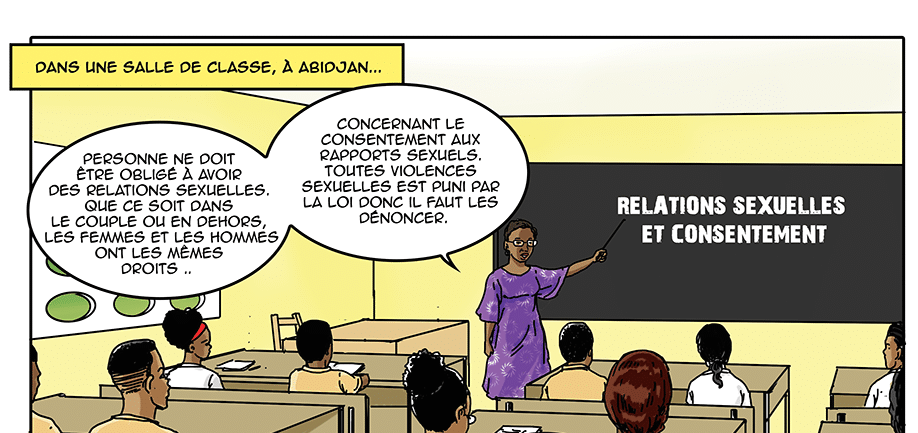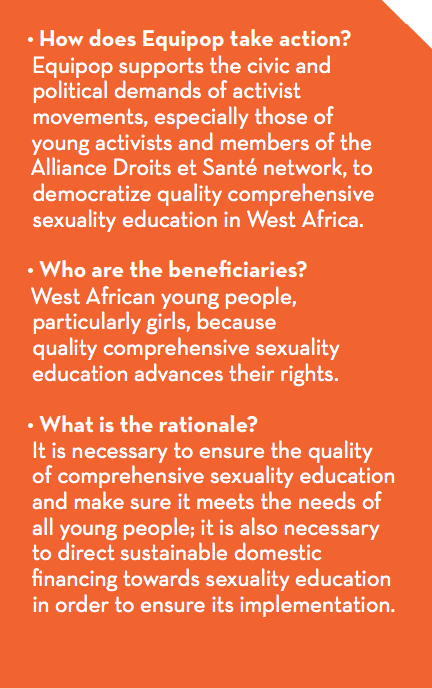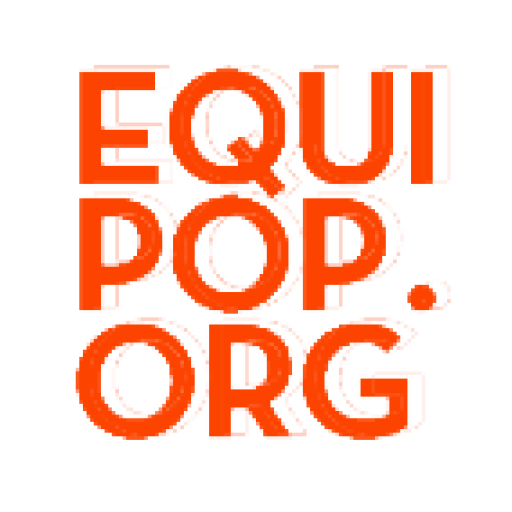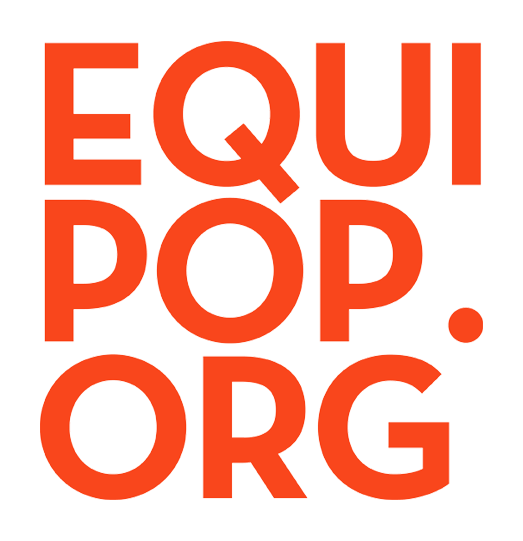
– Working towards quality comprehensive sexuality education in West Africa
A large body of research shows that high quality sexuality education has highly positive long-term effects on the lives of young girls and boys.
Equipop and its West African partners have worked for several years to promote comprehensive sexuality education (CSE) and its systematic mainstreaming into school curricula. In 2019, Equipop supported the policy and civic actions of 21 groups that make up the Alliance Droits et Santé (Rights and Health Alliance) network.
CSE HAS MANY BENEFITS BUT FEW CHAMPIONS
Too many young people lack reliable information about romantic relationships and sexuality. Many, aware of this lack of knowledge, are calling on policymakers and education leaders to commit to providing information in the classroom on sexuality and interpersonal relationships in a structured, positive, clear, and interest-centered way. Their requests find support in research that proves that CSE has many positive effects on the health and well-being of young people by promoting the delay of first-time sexual intercourse, lowering the number of partners, reducing risky behavior, and promoting the use of condoms and contraceptives. Other studies also show that sexuality education helps reduce gender-based violence, domestic violence, and discrimination as it strengthens gender equality, self-confidence, and interpersonal relationships.
Despite these findings, few West African countries have operationalized the International Guiding Principles on Sexuality Education,1 first published in 2009. Some countries have initiated efforts, such as Benin, which began mainstreaming CSE in 2019 at all school levels, from kindergarten to university, including new teacher training curricula. This rapid mainstreaming was facilitated by a strong political will and the government’s 27 quick institutional ownership of the process through the National Institute of Training Engineering and Capacity Building for Trainers (Institut National de l’Ingénierie de Formation and de Renforcement de Capacités des Formateurs, INIFRCF). Burkina Faso, too, gradually mainstreamed CSE between 2015-2020, after a pilot phase in 2013. CSE is now included in all preschool, primary, and post-primary curricula, and new teacher training curricula. However, for significant changes to take place, activist coalitions must continue to push this issue with governments and ensure that policymakers fully integrate the voices of young people and research results in order to enable quality policies and programs that achieve their objectives.
ALLIANCE DROITS ET SANTÉ AIMS TO MOBILIZE YOUNG PEOPLE AND COMMUNITIES AND OBTAIN LASTING POLITICAL COMMITMENTS
n 2019, with the technical support of Equipop, the 21 Alliance Droits et Santé member associations joined forces to challenge governments and mobilize young people and communities in the network’s six countries: Benin, Burkina-Faso, Côte d’Ivoire, Mali, Niger, and Senegal. As part of a regional campaign initiated by UNESCO and UNFPA, the Alliance called for strong commitments from health and education authorities in Ouagadougou Partnership member countries. In particular, the Alliance focuses its dialogue with decision-makers on three requests:
• Ensuring quality through a seamless continuum between the demand created by comprehensive sexuality education and the sexual and reproductive health and rights services deployed by the government.
• Taking into account the needs of all young people and adolescents, particularly young girls, for CSE and sexual and reproductive health services, whatever their age, sex, location, and whether or not they attend school.
• Ensuring sustainable state financing for CSE programs and sexual and reproductive rights and health services, and maintaining them, even during crises. Mobilizing At the same time, Alliance members have developed a multi-channel communication campaign called #JeVeuxSavoir (Tell Me More) in order to support the network’s advocacy efforts. The campaign aims to create the conditions for civic and political dialogue about the need for young people to know their rights and to have access to quality education and sexual and reproductive health services. The campaign strives to broadcast the voices of young people and to deconstruct stereotypes through social media, mass media, and during meetings and events in each Alliance country. Content created with Alliance partners aims to remind people just how positively CSE programs affect young people and adolescents. After the Covid-19 pandemic, it will be even more important to strengthen the content, educational approach, and accessibility of these programs in each country.
#JEVEUXSAVOIR (TELL ME MORE): USING ART TO BREAK TABOOS

Art is a channel for communicating, for floating ideas, and for making people think. When decorum or decency stop girls and boys from receiving crucial information about their sexual rights and health, art makes it possible to tackle these forbidden subjects. As part of the #JeVeuxSavoir campaign, around twenty volunteer artists were trained to deconstruct stereotypes and remove taboos about comprehensive sexuality education. Interested and often already active in promoting human rights, the artists took up the challenge of creating works aimed at informing, denouncing, debating, sharing, and making young people, their parents, and each member of the community think. The artists addressed many topics – from contraception to early pregnancy, sexual consent, menstruation, and puberty – through music, graphic arts, humor, and poetry. In this way, #JeVeuxSavoir reaches across all levels of society with a clear message from every young person: “Tell me more!”


